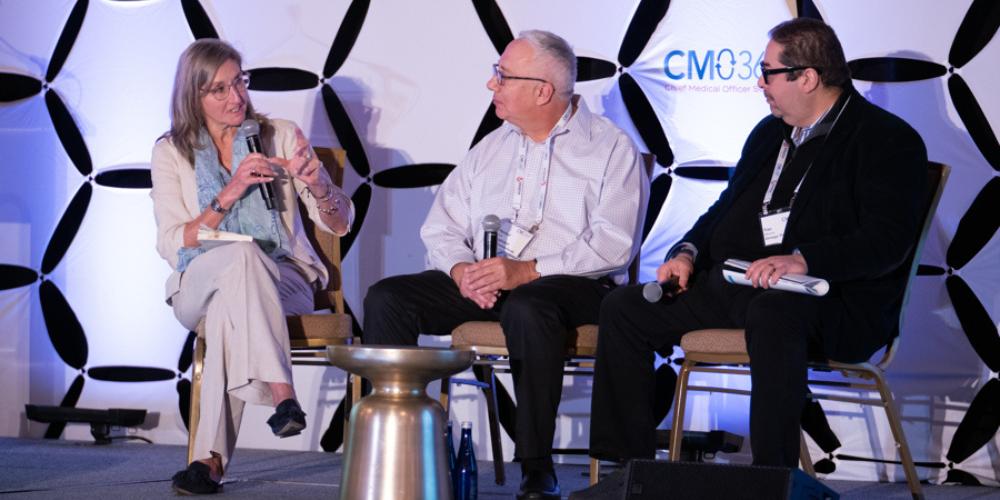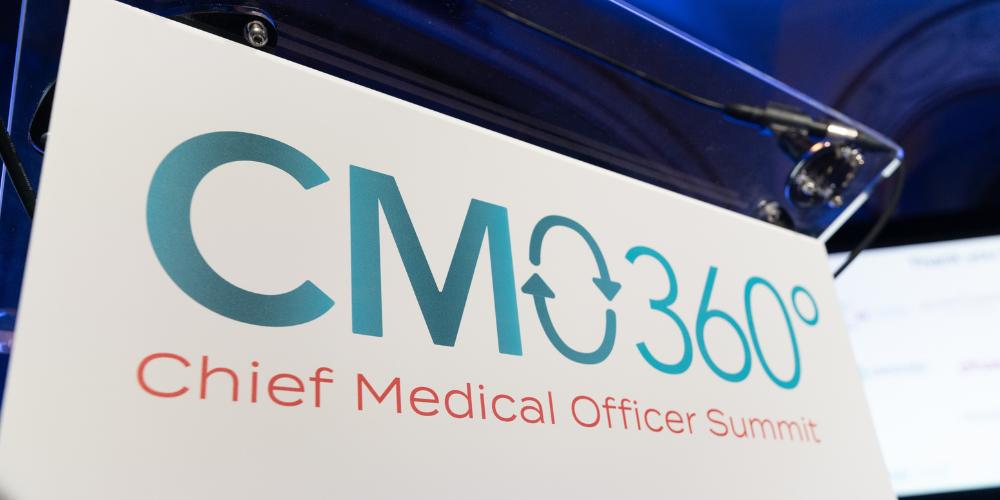
How should CMOs of early stage companies think about working with outsourcing partners versus running programs themselves?
It entirely depends on how large this trial is. Let’s say I have a cytokine that will cure warts and I have found a new agent which will allow it to penetrate the skin. All I want to do is rub this compound on some warts and see if they’ll go away. This is just a proof of concept study that will involve ten patients. While you do need informed consent, case report forms, data collection and management and the rest of the basics of a trial like going to a regulatory agency and IRB, there’s no reason why you can’t do that yourself.
You need to remember that the pharma company and you as the CMO are in charge. Whatever you do, you are responsible. If you’re doing a proof of concept study in very few people with a simple protocol, there is nothing that says you can’t do it on paper with case report forms that you develop and that you can’t reach out to the IRB yourself to get approval.
Now let’s say that you want to give something systematically to treat warts and you will need 20 patients. The amount of data to collect and manage is much larger. You need approval from more regulatory agencies. At this point, you need to start thinking about going to a CRO. If it’s a very small trial, you can do it yourself but if it’s larger, you should start thinking about going to a CRO. There are many advantages about working with a CRO but you want to manage those advantages rather than buy a plate full of options that aren’t really needed at your stage.
"There are many advantages about working with a CRO but you want to manage those advantages rather than buy a plate full of options that aren’t really needed at your stage."
How do you think about buying a “full package” versus purchasing specific functionalities, for Example, CRO Services
In a recent trial at AGT, we went from seven patients in a safety study and proof of concept to 24 patients. We made a list of all the things that we could do internally and all the things we needed done. We wanted a CRO who could do the things we cannot, but there is no reason to outsource those things we could do ourselves.
For example, we need someone to interface with the FDA. A CRO can definitely do that. We need someone to develop computerized case report forms, though we can develop the forms themselves internally. So we won’t outsource the development of case report forms but we will outsource their digitization.
One of the things CROs do very, very well is finding clinical sites and getting you patients. But I am an HIV expert who has been working in the space for 43 years, so I know the sites and where to get patients. So we didn’t need the CRO to go to the sites for us. You need to make a list of all the things you need done and check off which ones you can do and which ones you want to ask the CRO to do.
Is there a value in partnering with a CRO that can offer more support for later trials as opposed to specifically looking for what your biotech needs at its current stage?
It's like finding a wife. When you're 20 years old, the person that appeals to you as a partner may not be able to grow with you and be the partner you want when you're 50 years old and have been a successful Wall Street investor. You see that 50 percent of marriages in America end in divorce. Why? Because the partnership that they formed early on is not working later.
It's the same thing. If you're lucky enough to find a CRO that can grow with you or can carve out a small platform for you early on and then grow that into a larger platform, great. But in all probability, you're going to want to shop and find a CRO that can do the small study for you and then go to the larger CRO that's used to handling trials that have 50-1,000 patients at a later stage.
My advice would be to shop for someone who can provide you with the simplest things that you need. Don't buy things that you don't need to buy. Remember the CRO is a business. They're selling their business and so they've got a checklist of all the things they can offer and they will tell you that there's a risk here if you don't do this and a risk there that you don't do that. You're in charge of finding out what the real risks are. And there are some risks you're going to take, if you're smart, because it's going to cost you more than you can afford to cover every possible risk that they could have on their checklist. It’s their job to sell the services they can provide and it’s your job as a CMO to decide what services you need.
"My advice would be to shop for someone who can provide you with the simplest things that you need. Don't buy things that you don't need to buy."
How can you best navigate the RFP process when interviewing multiple CROs?
To go back to my original point, you need to make a list of what you need, make a list of what you can do internally and what you need a CRO to do, and then start talking to them. Even if you have the best CRO in the world, if they’re unwilling to carve out what you need, they may not be the CRO for you at this stage of development. You don’t have an unlimited budget and you don’t want to spend so much money on your CRO that you can’t do your research and development to get your product out.
Are there specific red flags to look out for?
I look for compatibility. Do I have the feeling that these people really want to work with me or are they just selling me a package in hopes that I’ll buy it? The relationship you have with the marketing associates at the CRO is an important step.
It’s also important to understand that there are personnel turnovers at CROs. If they have only one person assigned to your project and then that person moves somewhere else, you’re lost. It is always your responsibility. So you need someone in-house following what the CRO is doing so that you’re backing up your own trial and know what’s going on in case something like this happens. And, of course, this works the other way around where the CRO can back you up if you lose your administrator. But to summarize, you want a team assigned to your project and not just one person.
What about green flags? What makes the CRO-Sponsor relationship run smoothly?
One of the first things is to be sure that the CRO has some expertise in the field that you're working on. You want a CRO with a track record of providing. You want a CRO that can tell you what expertise they can provide like interfacing with the FDA, writing up protocols, managing biostatistics, etc. And you want to check that they can really provide these things rather than just taking them at face value.
"Even if you have the best CRO in the world, if they’re unwilling to carve out what you need, they may not be the CRO for you at this stage of development."
How do you navigate or preempt potential turnover in the staff assigned to your project?
You want an agreement early on that the person that you’ve contracted with is committed to being there. You can see how long that person has been part of the CRO and their track record. And you can try to mitigate this but you can never completely prevent it from happening.
This is where it’s very important to have a medical advisory committee. Even before you go to a CRO, you need a group of people with expertise in areas where you don’t. While I’ve been in HIV for decades, I have a medical advisory board with people who know areas I don’t. If a problem comes up like your CRO staff turning over, you need to turn to your team to ask about what to do. They might know someone who you can bring in as backup.
How can CMOs effectively build out a network of consultants?
This is exactly where the medical advisory board comes into play. Whenever you need expertise, they are a group to go to. Even if they aren’t able to provide the support you need, they have their own network of people who they can reach out to in order to support you.
Anything else?
Remember that if you're going into a larger trial, there are all sorts of things that a CRO can provide that you may not have the internal expertise for. They can provide you with the consultants to work with the FDA, access to clinical sites and patients, a project manager to help run your programs, biostatistics support and more. You just need to decide exactly what you want.









